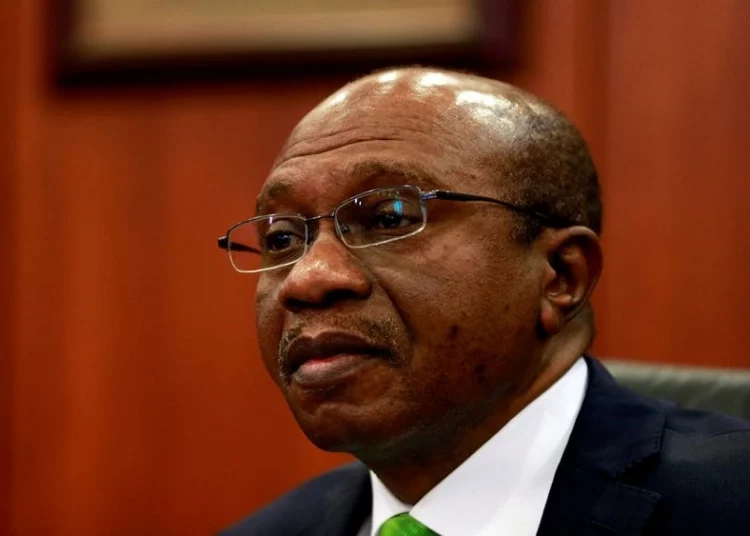Nigerian businesses have turned to the debt market to raise funds to cushion the impact of persistent rising cost of diesel, Naira devaluation, foreign exchange scarcity, among others, on their operational costs.
Manufacturers have been under severe pressure as a result of high cost diesel and raw materials, coupled with forex scarcity, high inflationary pressure and others which have taken a serious toll on their operational costs.
The tight operating environment has compelled many businesses to rely heavily on debt market for funds to finance their businesses through issuance of commercial papers (CPs) in Debt Capital Market (DCM) over regular equities financing.
LEADERSHIP Sunday findings showed that companies have continued to raise capital through the DCM, specifically the commercial papers, which is more of short term.
Consequently, only one company, Neimeth International Pharmaceuticals, has shown interest in raising N3.680 billion from right issues on the Nigerian stock market.
On the other hand, 17 companies cutting across several sectors of the economy have registered a total of N857 billion commercial papers from January to June 2022 on the floor of the FMDQ Securities Exchange.
FMDQ has approved the registration of MTN Nigeria Communication N150 billion CP. FCMB Group, FBNQuest Merchant Bank, Providus Bank and Coronation Merchant Bank listed N100 billion CP each on FMDQ, while Rand Merchant Bank Nigeria listed N80 billion CP.
Other companies are Nova Merchant Bank, Lekki Gardens Estate Limited, Robust Intentional Commodities Limited, UAC of Nigeria (UACN), SKLD Integrated Services, Veritasi Homes and Properties, Skymark Partners, Total Nigeria, Babban Gona Farmer Services Nigeria and Mixta Real Estate.
CPs are short-term debt financing securities (not longer than 270 days in tenor) consisting of unsecured and discounted promissory notes issued by large corporations with good credit ratings, which can be readily traded.
To this effect, operators urged the government to initiate strategic policies that would grow businesses in the country and address challenges of hostile and inconsistent macro-economic policies and regulatory environments impeding the nation’s development.
This, according to them, would help tackle the persistent stock market volatility, restore the market to a sustainable rebound and attract new issues to the nation’s bourse.
A stockbroker with Calyxt Securities Limited, Tunde Oyediran, said stock market regulators could attract more issues to the market with incentives such as reduction in transaction cost, the introduction of tax cuts and eliminating bottlenecks around application processes.
He pointed out that raising funds for working capital through CP has become a faster and cheaper way for companies to get funding for their business when compared to the cost of raising such funds through the equities market.
Similarly, the chief operating officer of InvestData Consulting Limited, Ambrose Omordion, stated that the issuance of Commercial Papers (CPs) has become the new trend in the Nigerian capital market used by companies to finance their operations.
He noted: “When businesses require a cash injection to meet working capital requirements, they turn to commercial papers rather than borrowing from Nigerian commercial banks on a short-term basis. CPs are typically issued at a discount to face value, reflecting the prevailing market interest rates in the country.
“As a result, it is cheaper for companies to raise capital through the commercial paper markets than borrowing from commercial banks because bank lending comes with higher interest rates.”
On equity financing, he said, “The weak macroeconomic environment, persistent volatility of the stock market, low participation from investors and other bottlenecks linked to the stock market makes equity financing unattractive to companies.
“Also, the high transaction costs and the complicated application process in issuing equities are some of the factors that have attracted companies to the commercial markets space.
“Regulators should review the cost of raising funds and listing requirements to attract more companies to source funds through equity and encourage listing.”
On his part, the vice president, Highcap Securities Limited, David Adonri, said, “Commercial Papers (CPs) are short term money market instruments used to finance working capital while equities are long term instruments used to finance fixed or long-term assets. They serve different purposes.
“The increasing issuance of CPs may be due to an increase in need for short-term working capital finance rather than necessity for project finance.”
For his part, managing director, APT Securities Limited, Mallam Garba Kurfi, said, “The prices of equities are below the fair value that discourages companies from issuing equity at discount value; rather, they choose to go to fixed income market through Bonds or CPs. The CPs are also cheap compared with bank loans.”
Also, chief executive officer of FMDQ Group, Bola Koko stated that, “as the Nigerian DCM continues to witness significant activity with diverse corporate institutions tapping the market as an efficient alternative to meeting their funding and liquidity requirements, FMDQ Exchange will continue to provide timely and cost-efficient services to support its stakeholders, particularly issuers and investors, towards accessing capital, managing risks and invariably, improving their corporate profile.”





